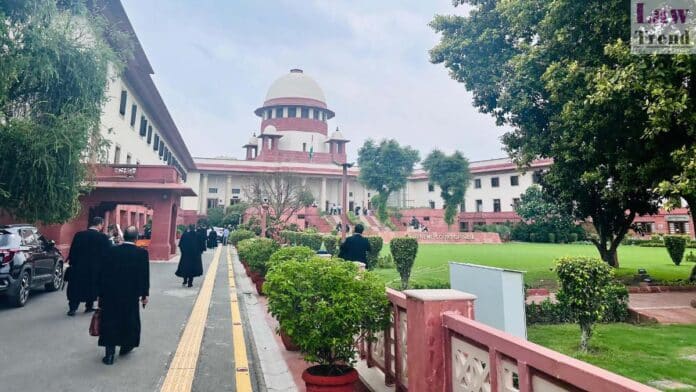The Supreme Court on Thursday directed the Noida District Hospital to constitute a primary medical board to examine whether life-sustaining treatment can be withdrawn for a 31-year-old man who has remained in a vegetative state for more than a decade. The bench said his condition has deteriorated further and requires a fresh, expert evaluation.
A bench of Justices JB Pardiwala and KV Viswanathan asked the hospital in Sector 39, Noida, to file its report within two weeks on an application filed by the father of Harish Rana, who has 100 percent disability due to quadriplegia.
“We want the primary board to give us a report that life-sustaining treatment can be withheld. Let the primary board place its report at the earliest, and once it is before us, we shall proceed to pass further orders,” the bench said. After perusing recent medical records, Justice Pardiwala remarked, “Just look at the condition of the boy. It’s pathetic.”
Passive euthanasia involves withdrawing or withholding treatment necessary to sustain life. The request before the court is limited to passive euthanasia, not active euthanasia, which remains illegal.
Advocate Rashmi Nandakumar, appearing for the father, said the family had tried every option suggested earlier by the authorities. “Today, what is happening is that he is falling ill quite often and has been taken to the hospital. What I am asking is that his case, as per this court’s judgment in the Common Cause case, be referred to a primary board,” she said. If the board concludes that treatment may be withheld, a secondary board would then be constituted in accordance with the 2018 guidelines.
This is the second time in two years that the parents have approached the Supreme Court. On November 8 last year, the court had considered a Union Health Ministry report recommending home-based care with state assistance and periodic visits by doctors and a physiotherapist. It had also said that if home care was not feasible, Rana could be moved to the Noida District Hospital for proper medical support.
Rana, then a student at Punjab University, suffered severe head injuries in 2013 after falling from the fourth floor of his paying guest accommodation. He has remained completely bedridden and dependent on an artificial feeding tube for over 12 years.
Last year, the Supreme Court had agreed with the Delhi High Court’s view that Rana was not on ventilator support or other mechanical life-sustaining systems. Since he was surviving without external mechanical aid, the courts held that the legal threshold for permitting passive euthanasia had not been met.
The Delhi High Court had emphasised that although it sympathised with the parents, “the petitioner is not on any life-support system and the petitioner is surviving without any external aid.” It also reiterated that active euthanasia is not permissible under Indian law, observing that “no one, including a physician, is permitted to cause the death of another person by administering any lethal drug.”
The Supreme Court has now directed its registry to forward a copy of the latest order to the Noida hospital and to the office of Additional Solicitor General Aishwarya Bhati. Once the medical board submits its report, the bench will consider the next steps under the framework laid down in the 2018 Common Cause judgment.
For the parents, who have reportedly sold their house while caring for their son, the court noted earlier that the situation is a “very hard one.” The upcoming medical assessment will determine whether the legal pathway for passive euthanasia can be initiated.




